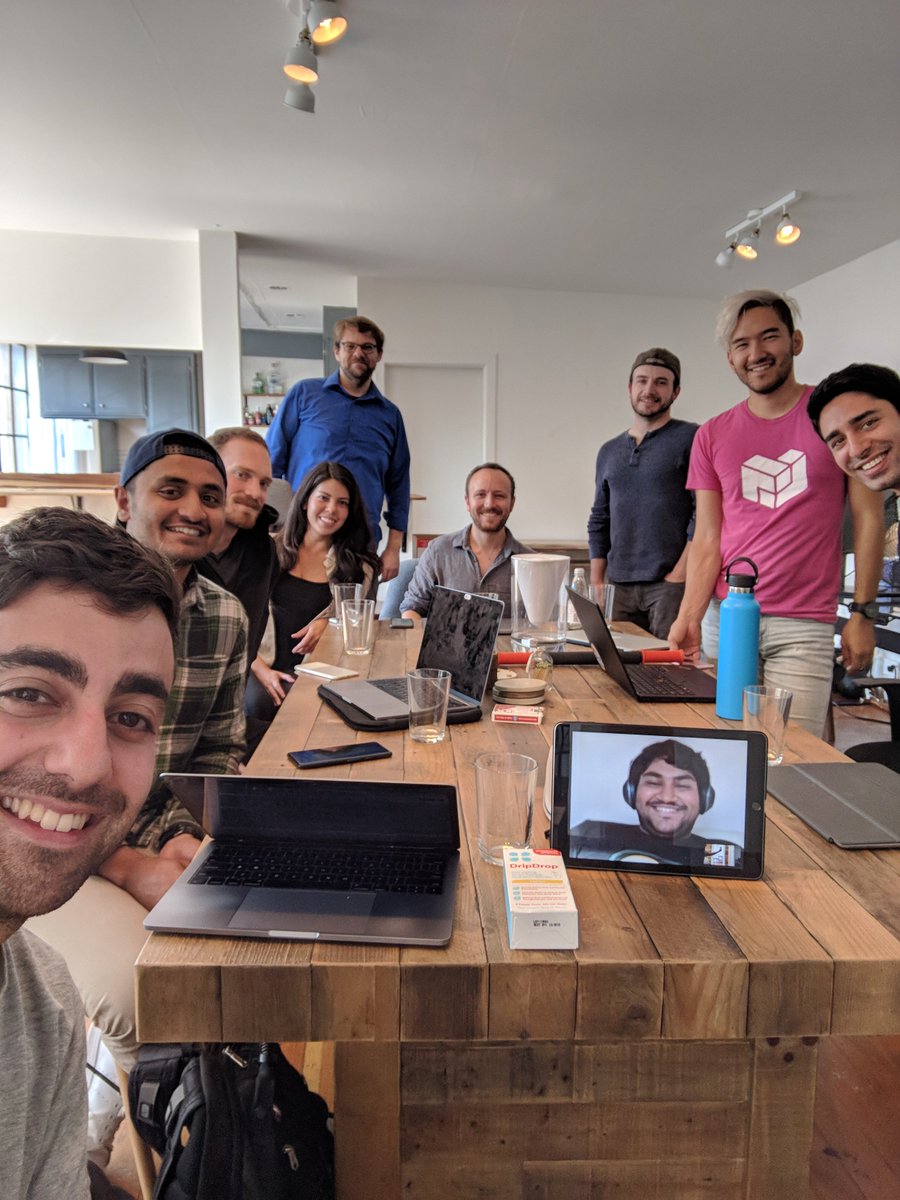Stripe’s had remote engineers since the early days, 7 years ago.
Started investing in engineering hubs beyond SF in 2017: Seattle, Dublin (EMEA), Singapore (Asia-Pacific)
• travel there and meet the local community, to understand the working culture. This coffee chat was part of it for remote.
• have a site lead - this is @chimeracoder for remote.
1. Have teams across the org feel like they can hire remote.
2. Have effective remote hiring practices from a candidates pov.
3. Improve the day to day experience of working remote.
Solution: write decisions down, and gather feedback before implementing.
• teach how to present well online, how to set up audio and light, ..
• pay attention to nuances: e.g. not wearing headphones because it subconsciously makes people feel farther away
• daily standup in Slack
• e-mail transparency: in any product discussions, cc anyone who’s relevant so they have context on decisions.
• when people are visiting, try to have them overlap in the office. Rotate hosting in-person get-togethers between hubs (not only in SF).
• gather questions on Slack for company meetings, live-stream, and record them for later viewing - e.g. the biweekly all hands, or the weekly Q&A.
Harder to do this for fully nomadic employees. How it’s shaping up: there are separate talent markets in a few expensive cities (e.g. SF, NYC, London, ..) and an overall global talent market.
• build a globally unified payment stack that works everywhere - in Brazil, India, China, Indonesia, ..
• build applications on-top of this payment stack: Billing, Sigma, others (e.g. automated cohort analysis recently)


